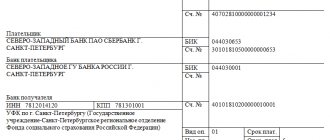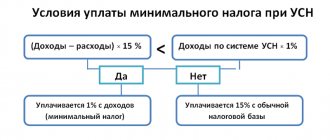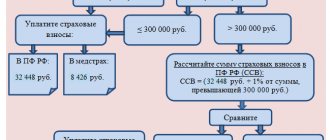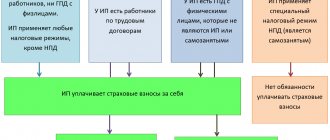Working hours and payments while on watch
Working conditions on a rotational basis are separately identified within the framework of labor relations carried out in remote places or areas with special natural conditions (Article 297 of the Labor Code of the Russian Federation). The mobile type of work is used to cover the shortage of labor resources. The remote nature is recognized when the work is located at a significant distance from the place of residence of the employees or the location of the enterprise.
Employee benefits for rotational work differ from those for traditional shift work. Features of compensation for special conditions:
- The work schedule is permanent, agreed upon by the parties to the contract. A shift is not recognized as time spent on a business trip issued in connection with the fulfillment of a one-time order from the manager.
- Employees on duty outside their place of residence are not entitled to daily payments.
- Employees are not paid field pay or additional payments for the mobile nature of their work.
Instead of amounts compensating for a special labor regime, individuals receive from employers an allowance for working on a shift basis. The bonus is paid in lieu of daily allowance for each calendar day of work, downtime, breaks between shifts and periods of travel.
Normative base
Resolution of the State Labor Committee of the USSR, the Secretariat of the All-Union Central Council of Trade Unions, the Ministry of Health of the USSR dated December 31, 1987 N 794/33-82 “On approval of the Basic Provisions on the shift method of organizing work”
Decree of the Government of the Russian Federation dated 02/03/2005 N 51 “On the amount and procedure for paying bonuses for shift work employees of federal government bodies and federal government agencies"
Letter of the Ministry of Finance of Russia dated 02/09/2018 N 03-04-05/7999
Federal Law of July 24, 1998 N 125-FZ “On compulsory social insurance against industrial accidents and occupational diseases”
Decree of the Government of the Russian Federation of July 18, 1996 N 841 “On the List of types of wages and other income from which alimony for minor children is withheld”
Federal Law of October 2, 2007 N 229-FZ “On Enforcement Proceedings”
The specifics of working on a shift basis are established by Chapter 47 of the Labor Code of the Russian Federation. Also today, to the extent that does not contradict the provisions of the Labor Code, the working conditions of such workers are regulated by Decree of the USSR State Committee for Labor, the Secretariat of the All-Union Central Council of Trade Unions, and the USSR Ministry of Health dated December 31, 1987 No. 794/33-82.
Allowance for special work regime
A shift is understood as a period covering the time of performing remote work and the break between shifts. The duration of the shift period should not exceed more than a month, or, less often, have a duration of no more than 3 months (Article 299 of the Labor Code of the Russian Federation).
Employees are awarded a special bonus for each day of the periods:
- Movements from the assembly point to the watch point.
- Performing work at a remote site, including breaks in accordance with the schedule.
- While on the road from the place of duty to the territorial unit of residence or location of the employer.
- Downtime in work or travel due to weather conditions or the fault of the carrier.
The amount of the bonus depends on the category of complexity or responsibility of the work. One work team may contain positions with different amounts of allowances. For positions with the same responsibilities, additional payments are equal.
| Shift category | Adjusting the amount of premium |
| Federal level | Federal regulations |
| Subjects of the federation | Regional laws and regulations |
| Local level | Municipal orders and acts |
| Entity | Internal documents of the company - collective agreement (adopted in agreement with representatives of the work collective or trade union body), employment contract and other acts |
The minimum or maximum amount of the premium paid by commercial structures is not limited by the rules. When determining the size, employers are guided by the economic feasibility of costs.
Accounting
Allowances and other payments related to shift work are paid to the employee along with the basic salary (Part 1 of Article 129 of the Labor Code of the Russian Federation).
Reflect the accrual of payments in accounting in the same way as the main salary: Debit 20, 25, 44... Credit 70
– an allowance (other payments) was accrued for shift work.
An example of reflecting an allowance for a shift method in accounting
Employee of Alpha LLC A.I. Ivanov works on a rotational basis (from the 1st to the 15th of each month, 10 hours a day). Ivanov has an hourly rate of 100 rubles/hour. The organization uses summarized working time tracking. The accounting period is quarter.
In November, Ivanov worked for 15 days. On November 16–17, he was on his way to his place of work. For November, Ivanov was accrued 19,627 rubles, including:
- salary for time worked – 15,000 rubles;
- allowance for shift work – 3027 rubles;
- daily rate for travel time to the place of work is 1600 rubles.
The accountant made the following entry in accounting:
Debit 20 Credit 70 – 19,627 rub. – Ivanov’s salary for November was accrued.
The amount of allowance for watchkeeping conditions
Collective and labor agreement documents establish the amount and conditions for the provision of bonuses (Article 302 of the Labor Code of the Russian Federation). The mandatory condition for establishing the amount of additional payment applies to commercial enterprises. When determining the value, the opinion of the representative body of employees of the enterprise is taken into account. The size of the allowance for budget financing enterprises is determined by legislative acts.
Compensation for expenses during watchkeeping in the form of an allowance is paid only to persons admitted by law to a special labor regime. Restrictions apply to minors, pregnant women, single mothers with young children and persons for whom the climate of the area is contraindicated for health reasons. Payments of allowances to persons with watch-keeping restrictions are illegal. Some features of the calculation of the premium have been established.
| Accrual conditions | Peculiarities |
| Basic value for determining the amount of the premium | The additional payment is provided primarily in the amount of a percentage of wages or salary. Accruals in a fixed amount are made less frequently due to the complexity of accounting |
| Days of the month taken into account for calculating the amount | The total payment amount is calculated not in working days, but in calendar days |
| Requirement to perform duties | The amount of payment does not reflect the fact of work being carried out or its absence during forced downtime |
An example of calculating the amount of the premium. The company has rotation workers on its staff. Internal documents determine the amount of the bonus to be 50% of the salary. Employee M. with a salary of 25,000 rubles in the month of April worked 20 days on a rotation basis, including travel time. When calculating remuneration, the bonus for the shift in April was calculated: N = 25,000 / 30 x 20 x 50% = 8,333.3 rubles.
Calculation example
Let us give an example of calculating the shift method of work in construction. P.P. Petrov is employed by the NPO Stroitel. Construction work is being carried out at a distance of 300 km. Standards for 2021:
- working days - 247;
- working hours - 1970.
Schedule for Petrov P.P. for April 2021 - from April 8 to 15 and from April 22 to 29. Service time - 12 hours. In total, Petrov worked 14 shifts of 12 hours each. The day off is Sunday.
Travel days to the collection point (there and back) are April 7 and 16, April 21 and 30, that is, 4 days.
Inter-shift rest is from April 17 to April 20, that is, 4 working days.
Let's calculate the salary of Petrov P.P. for April 2021
Expenses covered by the allowance
The list of reimbursable expenses is stipulated in the internal documents of enterprises. Persons do not have to provide reporting documents to the manager regarding expenses incurred. Costs associated with performing shift duties include:
- The cost of travel to the place of performance of duties and back, to the locality of residence, baggage fees.
- Target fees, commission fees, travel expenses to the station or airport.
- Amounts paid for obtaining a passport, visa, customs fees.
- Expenses for renting a room in a hotel or hostel. The employer is obliged to create rotational camps for employees to live. In the presence of specially equipped places, the cost of renting housing is not compensated.
- Other similar expenses associated with a special labor regime.
Important! The bonus is not considered part of the salary, but is recognized as a compensation payment in accordance with the terms of Art. 164 Labor Code of the Russian Federation.
What is considered a watch?
First of all, it is necessary to determine in which types of activities this type of payment should be used. The Labor Code defines a shift as a work schedule in which, while performing their work duties, workers are deprived of the opportunity to return home every day.
The Code identifies the following features of a rotational work method:
- removal of the facility where the work is being carried out from the employee’s place of permanent residence;
- the need to reduce the time required for construction, repair or maintenance of production facilities;
- location of production facilities in uninhabited areas or regions with special climatic conditions.
Expert opinion
Zakharov Nikita Evgenievich
Practicing lawyer with 7 years of experience. Specialization: family law. Member of the Bar Association.
The last sign, although characteristic, is not required for all cases. The employer has the right to send employees to work on shifts and in other situations if this is required due to the nature of the organization’s activities.
In particular, many construction and installation organizations often attract teams of workers from other regions to work in Moscow, St. Petersburg or other large cities, using the rotational organization of their work. Moreover, there is a decision of the arbitration court, which recognized as employed on shifts an employee who lived in Moscow and worked in the same city - but due to the working conditions, he was deprived of the opportunity to return home every day and therefore was forced to spend the night in a service dormitory.
If this method of work is used, the organization is obliged to provide its employees with accommodation in rotational camps, dormitories or other residential premises located near the production facility.
The duration of the shift, by law, cannot be more than 1 month. In exceptional cases and after mandatory coordination of this issue with the trade union, the duration can be extended to 3 months.
This takes into account both the actual work time during a shift and the rest time between shifts. However, the duration of the journey from the personnel gathering place to the facility itself during the shift period is not included, although it is paid.
Both all employees of the organization and some of them can be employed on shifts. For example, a separate construction team may work on a rotational basis, while special conditions will not apply to the administrative staff of the same enterprise.
Withholding of personal income tax from the amounts of the bonus received
The Ministry of Finance clarified the procedure for taxation of payments to rotational workers in letter No. 03-04-05/7999 dated 02/09/2021.
According to the explanations of specialists from the Ministry of Finance, bonus payments to shift workers are recognized as compensation provided for special working conditions. Amounts are exempt from income tax on the basis of the provisions of paragraph 3 of Art. 217 Tax Code of the Russian Federation. To apply the exemption, you must have the following grounds:
- Non-taxable amounts for commercial enterprises must be established by regulations or internal documents of the enterprise. The amounts are confirmed by the representative or trade union body of the employees.
- Payments to rotational workers from state funding are established by budget standards at the appropriate level.
Employers use the allowance to cover expenses, but must not make payments beyond the cap. According to experts from the Ministry of Finance, the amount of the bonus should be comparable to the expenses of employees during the shift period
Deputy Director of the Department V.A. Prokaev (letter dated July 13, 2021 No. 03-04-06/49149).
A significant excess of the amount over costs may lead to additional attention to the accounting of the enterprise and the adoption of a decision by the inspectors of the Federal Tax Service on additional assessment of income tax.
BASIC: general order
The amount of the allowance for shift work (for each calendar day of stay at the place of work and for the actual days of travel from the collection point to the place of work and back) is included in expenses when calculating income tax (clauses 3 and 17 of Article 255 Tax Code of the Russian Federation). In this case, the amount of the bonus and the procedure for its calculation must be fixed in the collective agreement, employment contract or in local regulations (letters of the Ministry of Finance of Russia dated September 2, 2011 No. 03-04-06/0-197, dated June 30, 2011 No. 03-03-06/1/384).
Take other payments for shift work into account when taxing profits if they are provided for in labor and collective agreements (letter of the Ministry of Finance of Russia dated June 30, 2011 No. 03-03-06/1/384).
BASIC: employee accommodation in hotels
Situation: is it possible to take into account when calculating income tax the costs of paying for employee accommodation in hotels, hostels or rented residential premises located at the places where work is performed? The organization does not create rotational camps.
Answer: yes, you can.
However, the legislation does not contain a clear answer to the question of the procedure for accounting for such expenses. The position of regulatory agencies is also ambiguous.
Employees involved in work on a rotational basis must live in facilities specially created by the organization during the work period:
- rotation camps;
- dormitories, other residential premises (paid for by the organization).
This is provided for by Part 3 of Article 297 of the Labor Code of the Russian Federation.
The costs of maintaining rotational camps can be taken into account when calculating income tax within the limits of the standards for the maintenance of similar facilities and services. The standards are approved by the local government authorities at the location of the organization’s activities. If such standards are not approved - according to the cost standards for the maintenance of similar departmental facilities operating in the region where the rotational camp is located. This is stated in subparagraph 32 of paragraph 1 of Article 264 of the Tax Code of the Russian Federation. If there are no similar departmental facilities in the region, expenses are recognized in the amount of actual costs (letters of the Ministry of Finance of Russia dated November 18, 2009 No. 03-03-06/1/761, dated December 19, 2008 No. 03-03-06/1/ 703, dated November 5, 2008 No. 03-03-06/1/616).
The Tax Code of the Russian Federation does not say that an organization can take into account when calculating income tax the cost of living of employees not in rotational camps, but in hotels or hostels or rented residential premises. In the list of expenses not taken into account when calculating income tax, these expenses are not named (Article 270 of the Tax Code of the Russian Federation). Subclause 32 of clause 1 of Article 264 of the Tax Code of the Russian Federation provides for a limitation only in relation to the costs of maintaining rotational camps. Consequently, the organization has the right not to apply these restrictions when accounting for the costs of paying for employee accommodation in dormitories, hotels or rented residential premises located at the places where work is performed.
The costs of employee accommodation in hotels and hostels can be taken into account as part of other expenses on the basis of subparagraph 49 of paragraph 1 of Article 264 of the Tax Code of the Russian Federation. The Ministry of Finance of Russia adheres to a similar position in letters dated September 3, 2012 No. 03-03-06/1/460, dated February 5, 2010 No. 03-03-06/1/49, dated June 16, 2009 No. 03- 04-06-01/137.
If an organization rents premises for the accommodation of employees working on a rotational basis, then the rent can be taken into account when calculating income tax on the basis of subparagraph 10 of paragraph 1 of Article 264 of the Tax Code of the Russian Federation. In addition, if under the lease agreement the obligation to bear the costs of maintaining the rented premises is assigned to the tenant, the organization has the right to take into account when calculating income tax:
- utility bills, expenses for payment for communication services (subclauses 10, 25, clause 1, article 264 of the Tax Code of the Russian Federation);
- expenses for repairs of the premises (clauses 1, 2 of Article 260 of the Tax Code of the Russian Federation).
Similar clarifications are contained in letters of the Ministry of Finance of Russia dated September 2, 2011 No. 03-04-06/0-197, dated June 30, 2011 No. 03-03-06/1/384, dated June 8, 2010 No. 03- 03-06/1/394, dated November 5, 2008 No. 03-03-06/1/613.
It should be noted that the Federal Tax Service of Russia takes a different point of view regarding living expenses for employees not in rotational camps (letter dated December 28, 2009 No. 3-2-09/278). It lies in the fact that the costs of paying for hotels, hostels or rented residential premises located in places where work is performed on a rotational basis reduce taxable profit only within the limits provided for by subparagraph 32 of paragraph 1 of Article 264 of the Tax Code of the Russian Federation.
In this situation, the organization must make a decision independently. If we adhere to the point of view of the Russian Ministry of Finance, it is possible that during the audit disputes will arise with the tax inspectorate. Arbitration practice on this issue is also heterogeneous. There are examples of court decisions in which judges confirmed that the costs of paying for hotels, hostels or rented residential premises located at work sites are not the costs of maintaining rotational camps. Consequently, the established standards for classifying them as other expenses under subparagraph 32 of paragraph 1 of Article 264 of the Tax Code of the Russian Federation do not apply (see, for example, resolutions of the Federal Antimonopoly Service of the Ural District dated August 17, 2009 No. Ф09-5852/09-С2, Moscow District dated September 10, 2008 No. KA-A40/7745-08). Other decisions express a point of view confirming the position of the Federal Tax Service of Russia (see, for example, the determination of the Supreme Arbitration Court of the Russian Federation dated September 11, 2007 No. 10961/07, the resolution of the Federal Antimonopoly Service of the West Siberian District dated May 14, 2007 No. F04-2542/2007 ( 33726-A75-41)).
BASIS: cost recognition date
If the organization uses the accrual method, then the moment of recognition of these costs depends on whether the amount of the bonus paid to the employee is considered direct or indirect costs. Write off indirect expenses in full in the period to which they relate (according to the rules of Article 272 of the Tax Code of the Russian Federation). And direct costs need to be distributed.
Organizations providing services can always take into account expenses at the time of accrual.
Such rules are established in Articles 318 and 272 of the Tax Code of the Russian Federation.
As a rule, the amount of the allowance relates to indirect costs (Articles 318 and 320 of the Tax Code of the Russian Federation). An exception is allowances paid to employees involved in the production of products or work (for example, allowances for production workers). They are classified as direct costs. Thus, trade organizations and organizations providing services take into account bonuses for the rotation method immediately (at the time of accrual). And production organizations can distribute them.
Situation: can a production organization always attribute the amount of bonus for shift work to indirect costs?
Answer: no, it cannot.
Organizations independently determine the list of direct expenses (clause 1 of Article 318 of the Tax Code of the Russian Federation, letters of the Ministry of Finance of Russia dated July 13, 2006 No. 03-03-04/2/174, dated January 26, 2006 No. 03-03-04/1 /60 and the Federal Tax Service of Russia dated February 24, 2011 No. KE-4-3/2952). However, dividing costs into direct and indirect should be economically justified. Otherwise, tax inspectors may recalculate income taxes.
Thus, the costs of paying employees directly involved in production should be taken into account as part of direct expenses. Refer to the salaries (including additional payments and allowances) of administrative staff as indirect expenses.
Organizations using the cash method should not distribute expenses into direct and indirect. They can take into account the amount of the bonus at the time of payment (subclause 1, clause 3, article 273 of the Tax Code of the Russian Federation).
Taxation of premiums on insurance premiums
Benefits paid to employees are subject to insurance premiums. The exception is the amount of compensation in the form of bonuses provided to rotational workers. Tax-exempt payments are made upon reimbursement of expenses arising in connection with the performance of labor duties (clause 2 of Article 422 of the Tax Code of the Russian Federation).
The amounts provided to individuals to compensate for expenses and listed in clause 3 of Art. 217 Tax Code of the Russian Federation. The condition for tax exemption is the determination of the amount of payment in contracts or other internal documents of the enterprise.
Mistakes made when taxing allowances
Error No. 1. The amount of the bonus constitutes a significant part of the payments to rotational workers. The position of adding bonuses to wages with the inclusion of amounts in the composition of average earnings is erroneous. Compensation for expenses for the conditions of watchkeeping is compensation and is not taken into account when calculating bulletins, vacation pay and other payments based on average earnings.
Mistake No. 2. Employers have the right to hire persons with foreign citizenship. When concluding a contract for work under shift conditions, it is necessary to take into account the requirements for the location of persons. Temporarily staying or residing foreigners have the right to work in the region where the patent, permit or other document was issued. The restriction does not apply to the performance of an official assignment as part of a business trip of a foreign national.
Exceptions are highly qualified specialists who have the right to work in several documented regions, and citizens of the EAEU who work legally without obtaining a permit.
Answers to common questions
Question No. 1. Are northern coefficients taken into account when calculating the premium?
The northern coefficient is not calculated on the amount of the watchkeeping allowance. The increasing factor is applied separately from the amount of additional compensation.
Question No. 2. Can an employer apply a rotational labor method to a group of people, a team, or has the right to draw up an agreement with one person?
The legislation does not establish a requirement to create a team to apply a rotational work method. Sending one specialist to work on a shift basis is not considered a business trip. A remote work agreement can be concluded with one employee.
OSNO and UTII
The amount of allowances for the rotation method is taken into account according to the rules of the taxation regime applied for the activity in which the employee is engaged.
If an organization combines UTII and the general taxation system and an employee is engaged in both types of activities of the organization, then the amount of the bonus for the rotation method must be distributed. This is due to the fact that when calculating income tax, expenses related to activities on UTII cannot be taken into account.
This procedure is established by paragraph 9 of Article 274 and paragraph 7 of Article 346.26 of the Tax Code of the Russian Federation.









